
Exposure to BPA During Infancy May Increase Likelihood of Food Intolerance in Later Life
By Dan DeBaunShare
These days more and more people seem to be intolerant of, or allergic to, a variety of food types than ever, and there may just be a good reason why this is so. Results of a new study, which was published in the The FASEB Journal (November 2014), show that exposure to low doses of Bisphenol A (BPA) in the perinatal stages of development is linked with an increased risk of developing food intolerance in adulthood. The study, which was conducted on rats, proposes that exposure to BPA at doses significantly lower than current human safety levels set by the FDA during the months shortly prior to, and after birth can affect the developing immune system, predisposing offspring to food intolerance later in life.
"Food contributes over 80 percent of the population's exposure to BPA," said lead author, Sandrine Menard, from the Department of Neuro-Gastroenterology and Nutrition at INRA in Toulouse, France. "On the basis of the susceptibility to food intolerance after perinatal exposure to BPA, these new scientific data may help decisions by public health authorities on the need of a significant reduction in the level of exposure to BPA in pregnant and breastfeeding women, to limit the risk for their children of adverse food reactions later in life."
For the study, the researchers assessed two groups of pregnant rats. Rats in group one were fed BPA orally daily (at a dosage of 5 µg/kg of body weight/day) from the fifteenth day of gestation until the young rats were weaned twenty-one days after birth. Rats in the control group were fed daily from the BPA administering vehicle, but no BPA was added to their diet. After being weaned, the offspring from both groups were left untouched until they reached adulthood at 45 days old, at which point females offspring from both groups were assessed for food intolerance.
When the rats were fed a new protein food (ovalbumin), rats that were exposed to BPA during perinatal stages exhibited an exacerbated immune response to ovalbumin, while rats in the control group did not. Furthermore, when rats that were exposed to BPA were fed ovalbumin repeatedly, they suffered inflammation of the colon, a symptom of food intolerance, which was not evident in rats from the control group.
For Food Intolerance, Prevention is Better than Cure
This research strongly supports a rationale for managing immune disorders such as food intolerance through prevention rather than therapy. It is hoped that the study may assist public health officials recognize the range of impacts that BPA exposure has on the immune system, including the effect of exposure at low doses, and during critical stages of development, particularly the impact on fetal developmental stages, and on pregnant women and women who are breastfeeding their young.
"We may look back one day and see BPA exposure as one of the more important public health problems of our time," said Gerald Weissmann, Editor-in-Chief of The FASEB Journal. "We know that too much exposure is bad, but exactly how much exposure is too much is still up for debate."
BPA can be found in a range of everyday products, notably plastic containers commonly used to package food and drinks (including baby bottles and water bottles), and in epoxy resins used as metal coatings in bottle tops, food cans, and even municipal water pipes that supply our homes with drinking water. BPA has even been found in breast-milk. Consumers can be exposed to BPA when it leaches into the contents of the bottle or can that it is incorporated in, or into the water passing through pipes.
Forget bottled water, drink healthy water straight from your tap by filtering out any potential BPA and other harmful contaminants with a top of the range home water filter from the Big Berkey line of products.
Journal Reference
Sandrine Menard, Laurence Guzylack-Piriou, Mathilde Leveque, Viorica Braniste, Corinne Lencina, Manon Naturel, Lara Moussa, Soraya Sekkal, Cherryl Harkat, Eric Gaultier, Vassilia Theodorou, and Eric Houdeau. Food intolerance at adulthood after perinatal exposure to the endocrine disruptor bisphenol A. FASEB J. November 2014 28:4893-4900; doi:10.1096/fj.14-255380 ; https://www.fasebj.org/content/28/11/4893.abstract
-
Regular price From $302.00 USDRegular priceUnit price / per
-
Regular price $234.00 USDRegular priceUnit price / per
-
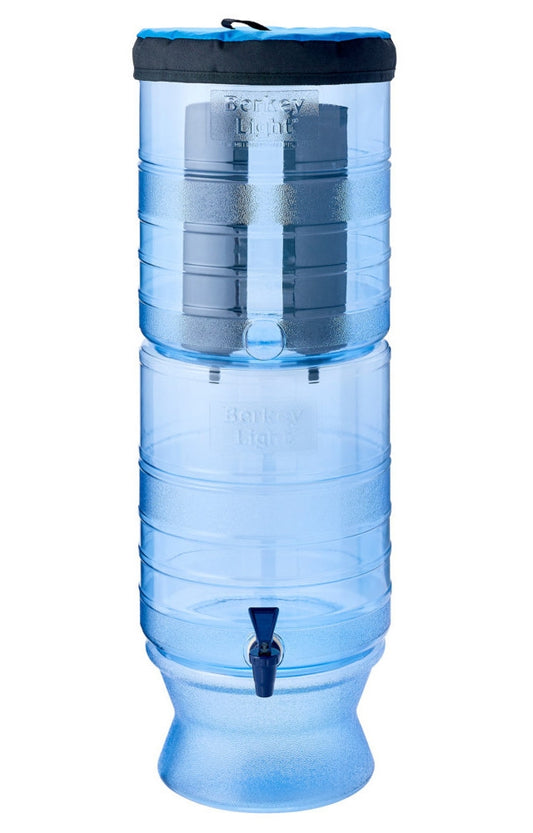
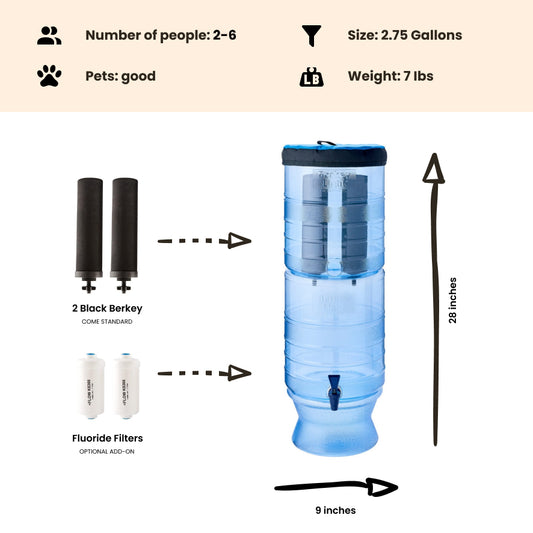 Sold outRegular price From $305.00 USDRegular priceUnit price / per
Sold outRegular price From $305.00 USDRegular priceUnit price / per -
Regular price $327.00 USDRegular priceUnit price / per
-
Regular price From $367.00 USDRegular priceUnit price / per
-
Regular price From $408.00 USDRegular priceUnit price / per
-
Regular price From $451.00 USDRegular priceUnit price / per

Dan DeBaun
Dan DeBaun is the owner and operator of Big Berkey Water Filters. Prior to Berkey, Dan was an asset manager for a major telecommunications company. He graduated from Rutgers with an undergraduate degree in industrial engineering, followed by an MBA in finance from Rutgers as well. Dan enjoys biohacking, exercising, meditation, beach life, and spending time with family and friends.
~ The Owner of Big Berkey Water Filters



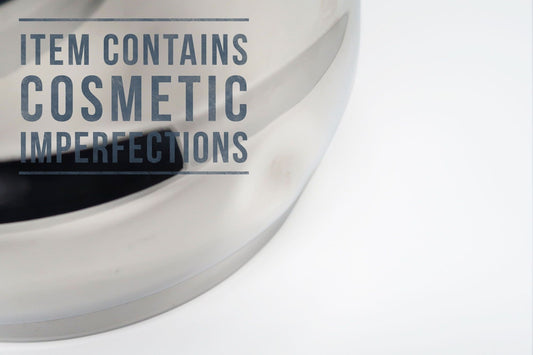








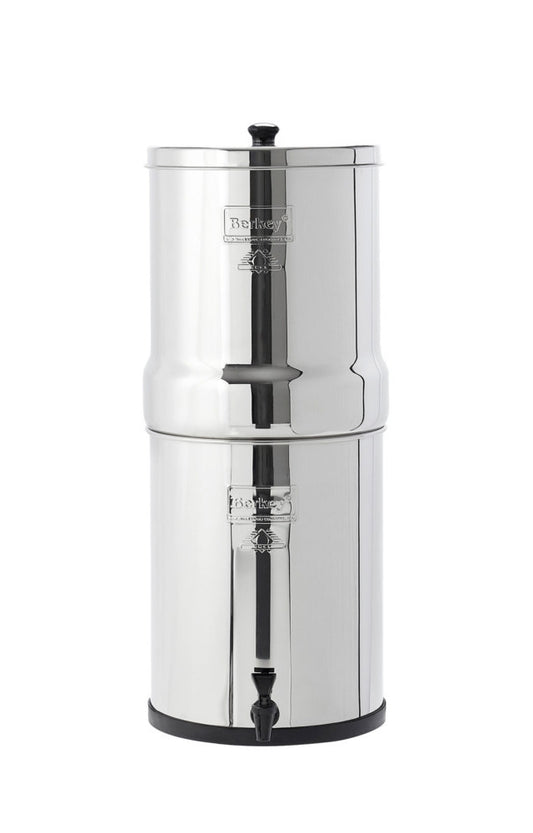
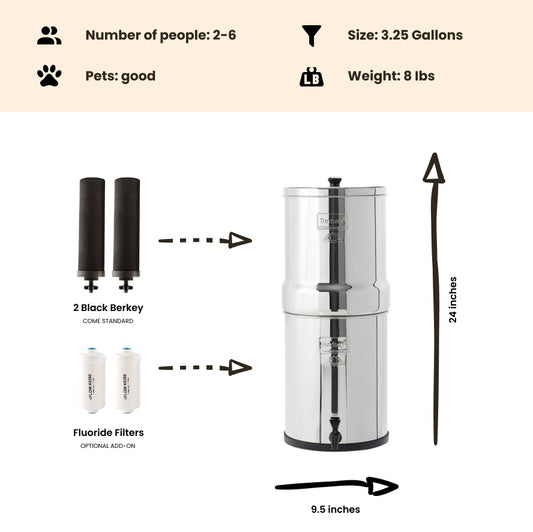



This is very frustrating to me. Between BPA, Monsanto's Round-up and all of the other environmental toxins that are everywhere, it's no wonder that the population is dealing with so many autoimmune and chronic diseases in younger and younger people. I myself now have 4 autoimmune diseases including Celiac Disease and Hashimoto's Thyroiditis which I was diagnosed at age 30. The general public seems to have no idea that they are slowly poisoning themselves and their families. I wish I had known these things years ago and could have prevented these horrible conditions in the first place. I will be sharing this article with everyone I know. Thank you for posting this information!